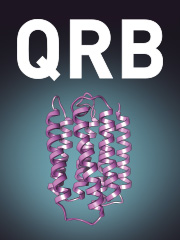Article contents
A focus for biophysical research in energy problems†
Published online by Cambridge University Press: 17 March 2009
Abstract
There is widespread agreement that solar energy is the most promising long-range energy source. However, contemporary technology for bulk energy storage is so primitive that full use of the inevitably erratic solar energy flux is severely limited. Biological systems have perfected methods of storing solar energy for later use in periods of darkness, and it is argued in this symposium presentation that there are many frontiers in biophysics related to the solar energy storage problem. Moreover, the conceivable biological storage systems span a wide range of technology, with appropriate applications in societies of widely varying degrees of industrial development. Use of biological systems to produce hydrogen from solar energy may be among the most versatile of these applications. The entire problem of bioconversion of solar energy presents an excellent example of how the needs for basic scientific understanding and application engineering can be very tightly interwoven.
Information
- Type
- Research Article
- Information
- Copyright
- Copyright © Cambridge University Press 1977
References
REFERENCES
- 2
- Cited by

